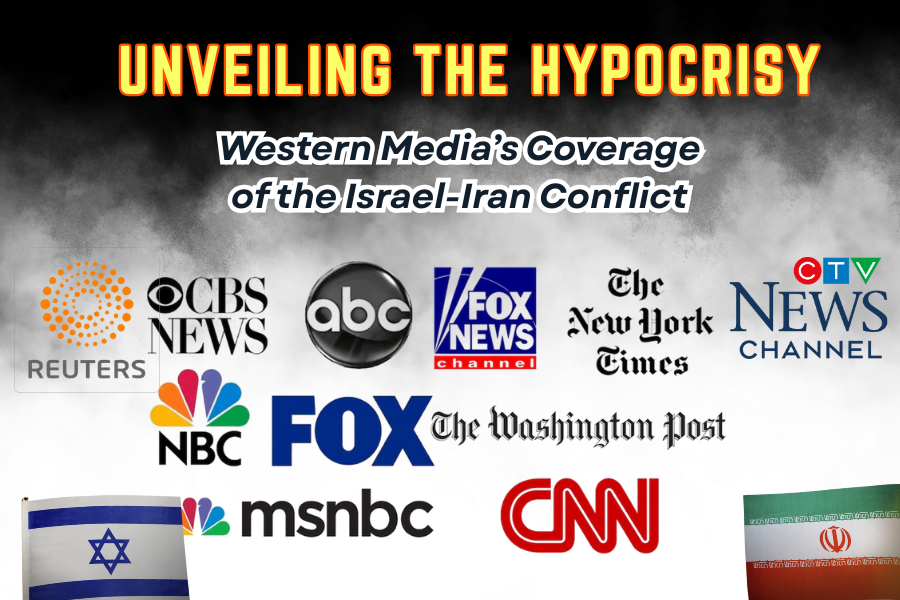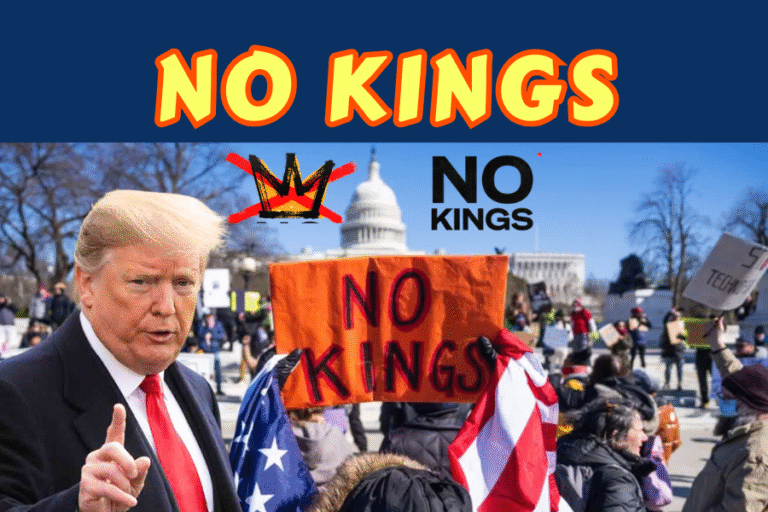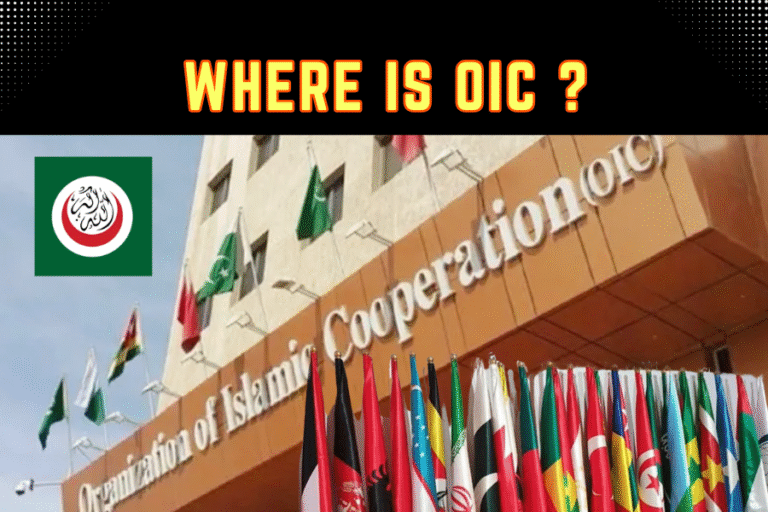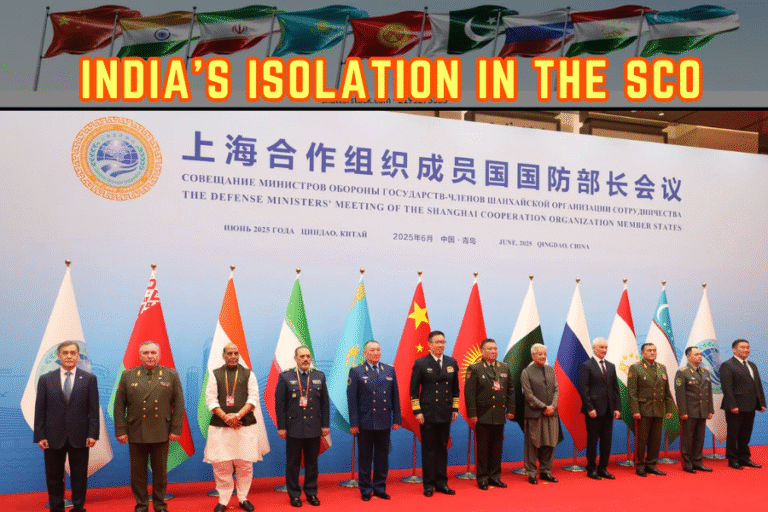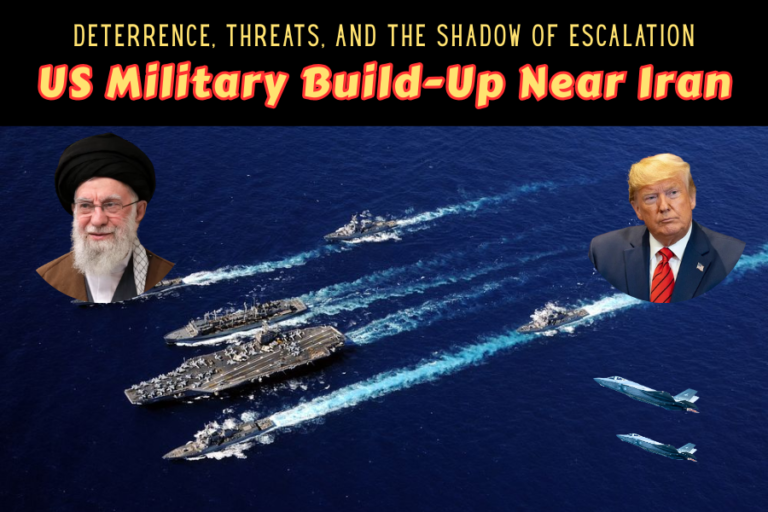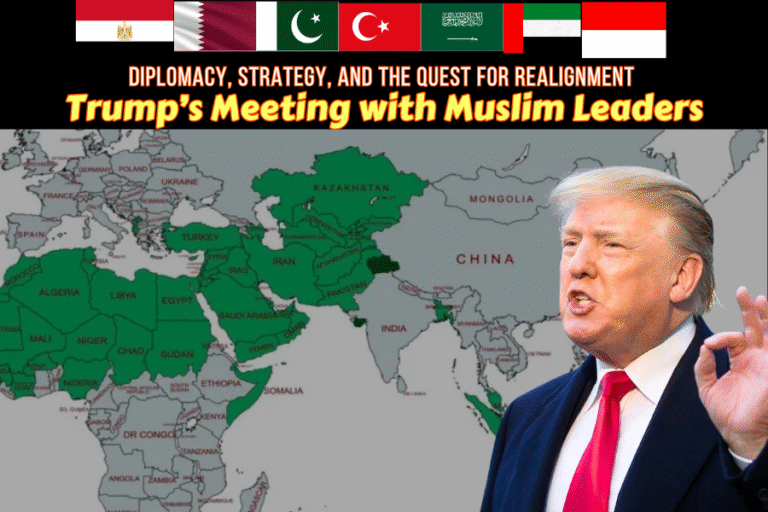(By Khalid Masood)
The Israel-Iran conflict, a volatile fault line in Middle Eastern geopolitics, has exposed a troubling hypocrisy in Western media coverage. Despite Israel’s unprovoked airstrikes deep inside Iranian territory—targeting sites near Isfahan and Tehran in April 2024 and June 2025, killing scientists, military commanders, and civilians—outlets like CNN, BBC, and Reuters have consistently framed Israel as a beleaguered victim rather than an aggressor. This narrative, eerily reminiscent of India’s “Godi media” that parrots state propaganda, inverts reality by labeling Israel’s actions as “preemptive” or “self-defence” while casting Iran as an existential “evil.” Such selective storytelling distorts global perceptions, obscures Israel’s violations of international law, and perpetuates a double standard that undermines the principles of impartial journalism. This article dissects the Western media’s bias, explores its role and responsibilities, and underscores the imperative of speaking truth to power in a world shaped by narrative warfare.
The Anatomy of Hypocrisy: Framing Israel as Victim, Iran as Villain
Western media’s coverage of the Israel-Iran conflict reveals a stark pattern of narrative manipulation. In June 2025, Israel’s airstrikes near Tehran, targeting nuclear research facilities and killing civilians, were described by Reuters as “strikes on Iran’s nuclear sites,” minimizing civilian casualties and framing the attack as a defensive necessity. In contrast, Iran’s defensive response was labeled an “attack on Israel as a collective,” amplifying its scale and intent. This selective framing mirrors India’s Godi media, where outlets like Republic TV justify New Delhi’s actions in Kashmir by vilifying Pakistan without context, such as the revocation of Article 370 in 2019. Similarly, in April 2024, Israel bombed Iran’s embassy compound in Damascus, killing seven Iranian officers, a clear violation of diplomatic immunity under the Vienna Convention. Iran’s retaliatory drone and missile strike on April 13 was framed by CNN and BBC as an “unprecedented attack on Israel,” with headlines like “Iran Targets Tel Aviv” overshadowing Israel’s initial aggression.
The “beheaded babies” claim from October 2023 exemplifies this hypocrisy. Following Hamas’ attack on Israel, unverified Israeli reports of Hamas decapitating infants were amplified by CNN, BBC, and The New York Times, with U.S. President Joe Biden initially endorsing the claim. Despite the White House and Israeli officials later retracting it due to lack of evidence, the story lingered for 18 hours, fueling public outrage and justifying Israel’s Gaza offensive. No comparable scrutiny was applied to Israel’s bombing of Gaza’s al-Ahli hospital, which killed hundreds but was cautiously attributed to “unclear sources” by Western outlets. This mirrors Indian media’s amplification of unverified claims against Pakistan, such as alleged “terrorism” in Balochistan, while ignoring India’s documented human rights abuses in Kashmir. The result is a distorted narrative that dehumanizes one side and sanctifies the other, eroding journalistic integrity.
Double Standards in Nuclear Narratives: Israel’s Arsenal vs. Iran’s Compliance
A glaring double standard lies in the coverage of nuclear capabilities. Israel, with an estimated 400 nuclear warheads and no adherence to International Atomic Energy Agency (IAEA) inspections, is rarely questioned by Western media about its undeclared arsenal. Yet, Iran, which has no nuclear weapons and permits IAEA oversight, is perpetually cast as a proliferator. In June 2025, BBC reports on Israel’s strikes near Isfahan emphasized “Iran’s nuclear ambitions” without mentioning Israel’s refusal to join the Non-Proliferation Treaty (NPT). Iran’s cooperation with the IAEA, contrasted with Israel’s opacity, is sidelined, reinforcing a narrative where Israel’s security trumps international law. Such coverage not only misinforms but also emboldens Israel’s impunity, as seen in its 2007 strike on Syria’s al-Kibar site, which went unreported by CNN for months.
The Role of Media: Shaping Perceptions, Wielding Power
Media is not a passive observer but a shaper of public consciousness, wielding the power to elevate or erase narratives. In the Israel-Iran conflict, Western outlets act as gatekeepers, amplifying Israeli perspectives while marginalizing Iranian voices. For instance, CNN’s 2024 series on victims of Palestinian suicide bombings lacked a parallel focus on Iranian or Palestinian civilian losses from Israeli strikes, a bias noted by CNN’s own staff as “journalistic malpractice.” This selective empathy mirrors India’s Zee News, which humanizes Indian soldiers in Kashmir but ignores Kashmiri civilian deaths, framing them as “collateral damage.” By prioritizing Israeli security concerns—such as fears of Iranian missiles—over Iranian civilian suffering, Western media legitimizes Israel’s actions, much as Indian media normalizes state violence in Kashmir. This role demands scrutiny, as media’s narrative choices influence policy, public opinion, and the perpetuation of conflict.
The Responsibility of Media: Upholding Truth Over Narrative
Journalism carries a sacred responsibility to report facts impartially, particularly in conflicts where lives and sovereignty are at stake. Yet, Western media’s coverage of the Israel-Iran conflict often prioritizes geopolitical alliances over truth. BBC’s 2023 labeling of a pro-Palestinian rally as “pro-Hamas” and CNN’s framing of the conflict as “good versus evil” reflect a departure from objectivity, akin to Indian Godi media’s portrayal of Pakistan as a “terror state” without evidence. The Guardian’s 2024 headline, “Iran’s Attack on Israel,” maximized Iran’s retaliation while minimizing Israel’s nuclear site strikes as “peak propaganda.” Responsible journalism requires equal scrutiny of all parties, as seen in Haaretz’s critical reporting on Israel’s apartheid policies, which contrasts sharply with Western outlets’ reluctance to challenge Israeli narratives. By failing to verify claims or provide context, such as Israel’s occupation or Iran’s defensive posture, Western media betrays its duty to inform, risking complicity in war crimes.
The Imperative of Truth-Telling: A Pakistani Perspective
From Pakistan’s vantage point, truth-telling is a diplomatic and moral imperative. As a nation that has faced media vilification—often labeled a “terrorism hub” by Indian and Western outlets despite its sacrifices in the War on Terror—Pakistan understands the cost of distorted narratives. In the Israel-Iran conflict, truth demands acknowledging Israel’s aggression, such as its June 2025 strikes killing Iranian civilians, and Iran’s right to self-defence under Article 51 of the UN Charter. It requires exposing Israel’s nuclear opacity and Iran’s IAEA compliance questioning Western hypocrisy. Truth-telling also means humanizing all victims, not just Israelis, as CNN did in its 2023 coverage of October 7 but failed to do for Iranians or Palestinians. Pakistani journalists, operating in a region scarred by narrative warfare, know that silence on these truths emboldens aggressors and erodes global justice. Speaking truth is not anti-Israel but pro-humanity, a stance that aligns with Pakistan’s advocacy for sovereignty and equity in international affairs.
Geopolitical Implications: Fueling Conflict, Eroding Trust
The Western media’s hypocrisy has far-reaching consequences. By framing Israel as a victim and Iran as evil, outlets like Reuters and The New York Times provide cover for Israel’s violations, such as its 2024 Damascus embassy strike, which provoked Iran’s response. This selective storytelling fuels escalation, as seen in the April 2024 tit-for-tat strikes, and risks a wider regional war, with Gaza, Lebanon, and Syria already destabilized. It also erodes global trust in Western institutions, as noted by 850 EU officials in 2023 who criticized Ursula von der Leyen’s “unconditional” support for Israel. Experts decrying BBC’s 2025 framing of Israel’s Tehran strikes as a “response to Iranian aggression” reflect this distrust, warning of propaganda’s role in justifying “Israel’s war crimes.” Ultimately, biased coverage undermines diplomacy, emboldens impunity, and alienates nations seeking a multipolar world order.
Learning from Indian Godi Media: A Cautionary Parallel
India’s Godi media offers a stark parallel to Western bias. Outlets like Times Now and Republic TV routinely frame India as a victim of Pakistani “terrorism” while ignoring India’s occupation of Kashmir, documented by Amnesty International as an apartheid-like regime. Similarly, Western media’s focus on Iran’s “missile threats” sidelines Israel’s nuclear arsenal and airstrikes, as seen in CNN’s 2024 coverage of Iran’s April 13 response but not Israel’s Damascus trigger. Both media ecosystems echo state narratives, suppress dissent, and dehumanize the “other.” For instance, just as Indian media omits Kashmiri voices, CNN and BBC restrict Palestinian or Iranian perspectives, with CNN banning Hamas footage unless cleared by senior editors. This alignment with power, whether in New Delhi or Washington, sacrifices truth for propaganda, a betrayal of journalism’s role as a check on statecraft. Pakistan, having navigated India’s media onslaught, recognizes this pattern and calls for a global media ethic that prioritizes facts over allegiance.
Toward a New Media Ethic: A Call to Action
The hypocrisy of Western media in the Israel-Iran conflict demands a reckoning. Journalists must reclaim their role as truth-tellers, not state amplifiers. This means verifying claims, as Haaretz did by challenging Israel’s Gaza policies, and providing context, such as Iran’s IAEA compliance versus Israel’s nuclear secrecy. It requires humanizing all victims, not selectively, and applying consistent terminology—calling Israeli strikes “massacres” if Hamas’ actions are labeled as such. Media outlets should heed the 2021 open letter by 500 journalists urging U.S. media to address Israel’s oppression, a model for global reform. From neutral’s perspective, a nation that champions sovereignty and justice, the path forward lies in independent journalism, as practiced by Al Jazeera or Pakistan’s Dawn, which balance empathy with scrutiny. Only by embracing this ethic can media restore trust, foster dialogue, and prevent narratives from fueling wars. The world deserves better than propaganda disguised as news.

